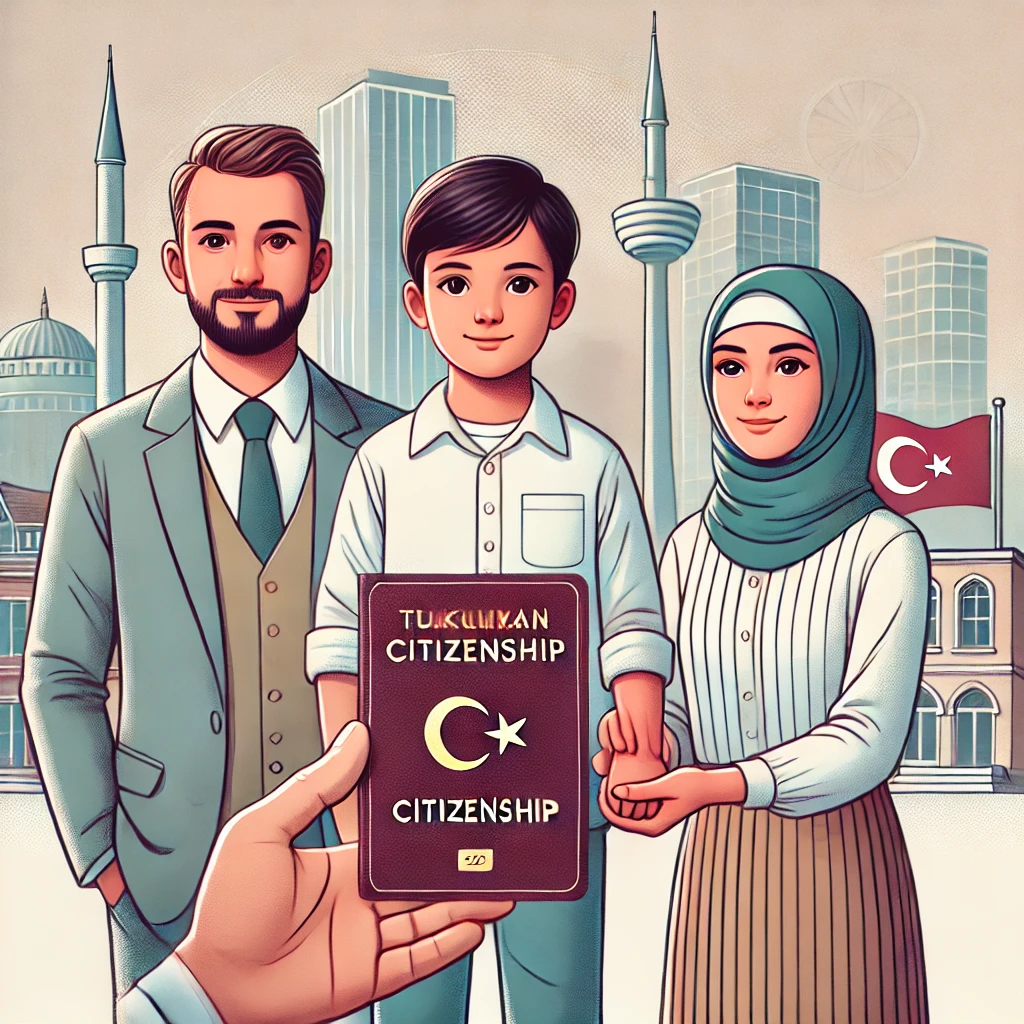Abstract
The citizenship status of children born to foreign parents in Turkey is governed by Turkish nationality law, which predominantly follows the principle of jus sanguinis (right of blood) rather than jus soli (right of soil). This article examines the criteria and legal procedures for determining the citizenship rights of children born to foreign nationals in Turkey, exploring specific cases and exceptions, and providing practical guidance for foreign parents seeking Turkish citizenship for their children.
Introduction
Turkey’s legal framework for citizenship is rooted in the principle of jus sanguinis, meaning citizenship is generally determined by parentage rather than place of birth. Consequently, children born to foreign parents on Turkish soil do not automatically acquire Turkish citizenship by virtue of birth location alone. This article will explore the legal pathways for these children to gain Turkish citizenship, both at birth and subsequently, under various conditions defined in Turkish nationality law.
Turkish Nationality Law: An Overview
According to the Turkish Nationality Law No. 5901, citizenship is primarily granted through parentage. Article 7 of the law states that a child born to a Turkish mother or father, whether in Turkey or abroad, is recognized as a Turkish citizen. However, the law does not extend automatic citizenship to children born on Turkish soil to non-Turkish parents, except in certain exceptional cases.
Conditions for Acquiring Turkish Citizenship at Birth
- Jus Sanguinis Principle
Under Turkish law, children born to foreign parents do not automatically qualify for citizenship simply because they were born in Turkey. Instead, citizenship is typically passed down from the parents’ nationality. Therefore, children born to foreign nationals in Turkey will inherit the citizenship of their parents as per their respective national laws. - Statelessness Exception
Turkish nationality law provides a special provision for children who would otherwise be stateless. If a child is born in Turkey to foreign parents and would become stateless due to their parents’ nationality laws, Turkish law permits the child to acquire Turkish citizenship. This provision aims to prevent cases of statelessness and provides a humanitarian solution for vulnerable children.
Options for Acquiring Turkish Citizenship After Birth
- Application for Citizenship Through Residence
Foreign parents may apply for Turkish citizenship on behalf of their child through a residence-based application process. If a child born in Turkey to foreign parents resides in Turkey for an extended period, the parents may apply for citizenship on behalf of the child. This process requires a continuous legal residence period, typically five years. - Naturalization of Foreign Parents
If one or both parents of a child born in Turkey subsequently acquire Turkish citizenship, the child may also be eligible for Turkish citizenship through this familial connection. In such cases, the naturalization of the parent(s) can open a pathway for the child to gain citizenship through the family-based application process. - Adoption by Turkish Citizens
If a foreign child born in Turkey is adopted by a Turkish citizen, the child is eligible to acquire Turkish citizenship. The adoption process must be legally recognized in Turkey, and citizenship is typically granted as a part of the legal adoption proceedings, providing the child with the rights and responsibilities of Turkish citizenship.
Legal Considerations and Requirements
- Documentation
To pursue citizenship for a child born to foreign parents in Turkey, it is essential to have complete documentation, including birth certificates, proof of residence, and proof of nationality of the parents. In cases where the child’s nationality is in question or where statelessness is a factor, additional documentation may be required to confirm eligibility. - Legal Process and Authorities Involved
Applications for Turkish citizenship for children are generally handled by the General Directorate of Population and Citizenship Affairs. The process involves multiple steps, including background checks, documentation verification, and residency confirmation, if applicable. For cases involving statelessness, additional assessments are conducted to confirm that the child meets the criteria outlined by Turkish nationality law. - Impact of Dual Nationality
Turkey allows dual nationality; therefore, children who acquire Turkish citizenship under these provisions may retain their original citizenship if permitted by their country of origin. However, parents should consult with legal professionals to understand the implications of dual nationality, particularly in cases where the child’s home country does not permit dual citizenship.
Potential Challenges for Foreign Parents
- Complexity of Statelessness Provisions
The statelessness exception is not automatically applied; it requires substantial proof and can involve lengthy bureaucratic processes. Parents of stateless children should seek legal assistance to navigate the requirements and present the necessary documentation. - Residency-Based Citizenship Requirements
Residency-based applications for citizenship involve strict residency requirements. Interruptions in residency, such as extended stays outside Turkey, may complicate or delay the application process. - Legal Costs and Timeframes
The process of acquiring Turkish citizenship for children can involve costs, including legal fees, application fees, and documentation expenses. Additionally, the timeframe for citizenship applications can vary significantly depending on the specific circumstances of the case and the thoroughness of the documentation provided.
Conclusion
Children born to foreign parents in Turkey do not automatically gain Turkish citizenship by birth. However, Turkish nationality law offers certain pathways, such as preventing statelessness and residence-based applications, for these children to potentially acquire Turkish citizenship. Foreign parents should carefully consider the legal requirements and consult with legal experts if they wish to secure Turkish citizenship for their children. By understanding the options and requirements, parents can navigate the complex legal landscape and secure their children’s rights and opportunities within Turkey.

Yanıt yok